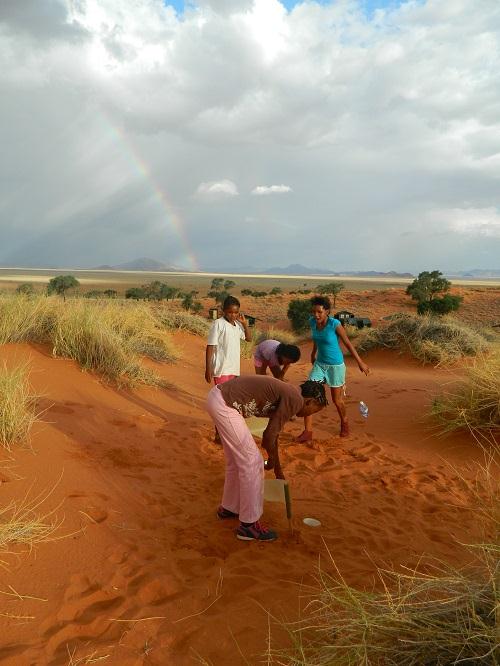NaDEET wins global award
An environmental education organisation in Namibia is one of this year's winners of the United Nations Educational, Scientific and Cultural Organisation (Unesco)-Japan Prize on Education for Sustainable Development.
The Namib Desert Environmental Education Trust (NaDEET), along with the Kalabia Foundation from Indonesia and the Lets Do It Foundation from Estonia, have been announced as the winners of the award for 2018. Each of the three non-profit organisations received prize money of US$50 000. This is about N$718 000 at today's exchange rate. Funded by the Japanese government, the prize was established by Unesco's executive board within the framework of the Global Action Programme.
The programme showcases and rewards outstanding education for sustainable development projects and programmes, and Namibia is among the three countries that won the fourth edition of the prize.
The Namibian organisation was selected for its project, NaDEET Centre on NamibRand, which runs week-long programmes and offers hands-on immersion in education in sustainable development for learners, community groups, educators and parents.
According to Unesco, it was awarded for its experiential, transformative approach to learning where sustainable living is not just theory but put into practice.
Since being established in 2003, the NaDEET Centre has hosted over 13 500 participants in more than 400 programmes. Schools throughout Namibia, especially in the Hardap Region, have made the NaDEET Centre an annual part of their school curriculum.
The NaDEET programme engages participants to critically reflect on their own lifestyle choices and to offer viable alternatives.
“The emphasis is on behaviour change. Using a learner-centred approach, participants practice sustainable living through solar-cooking their meals, saving water through bucket showers and making recycled fire balls to reuse paper,” said Unesco.
This year's winners were chosen by an independent international jury from 87 nominations submitted by governments of Unesco member states and organisations.
The core selection criteria were the projects' potential for transformation, their innovative quality and the ability to embrace all three dimensions of sustainability - the economy, society and the environment. The prizes was awarded to the three laureates at a ceremony in Paris on Tuesday.
ELLANIE SMIT
The Namib Desert Environmental Education Trust (NaDEET), along with the Kalabia Foundation from Indonesia and the Lets Do It Foundation from Estonia, have been announced as the winners of the award for 2018. Each of the three non-profit organisations received prize money of US$50 000. This is about N$718 000 at today's exchange rate. Funded by the Japanese government, the prize was established by Unesco's executive board within the framework of the Global Action Programme.
The programme showcases and rewards outstanding education for sustainable development projects and programmes, and Namibia is among the three countries that won the fourth edition of the prize.
The Namibian organisation was selected for its project, NaDEET Centre on NamibRand, which runs week-long programmes and offers hands-on immersion in education in sustainable development for learners, community groups, educators and parents.
According to Unesco, it was awarded for its experiential, transformative approach to learning where sustainable living is not just theory but put into practice.
Since being established in 2003, the NaDEET Centre has hosted over 13 500 participants in more than 400 programmes. Schools throughout Namibia, especially in the Hardap Region, have made the NaDEET Centre an annual part of their school curriculum.
The NaDEET programme engages participants to critically reflect on their own lifestyle choices and to offer viable alternatives.
“The emphasis is on behaviour change. Using a learner-centred approach, participants practice sustainable living through solar-cooking their meals, saving water through bucket showers and making recycled fire balls to reuse paper,” said Unesco.
This year's winners were chosen by an independent international jury from 87 nominations submitted by governments of Unesco member states and organisations.
The core selection criteria were the projects' potential for transformation, their innovative quality and the ability to embrace all three dimensions of sustainability - the economy, society and the environment. The prizes was awarded to the three laureates at a ceremony in Paris on Tuesday.
ELLANIE SMIT




Comments
Namibian Sun
No comments have been left on this article